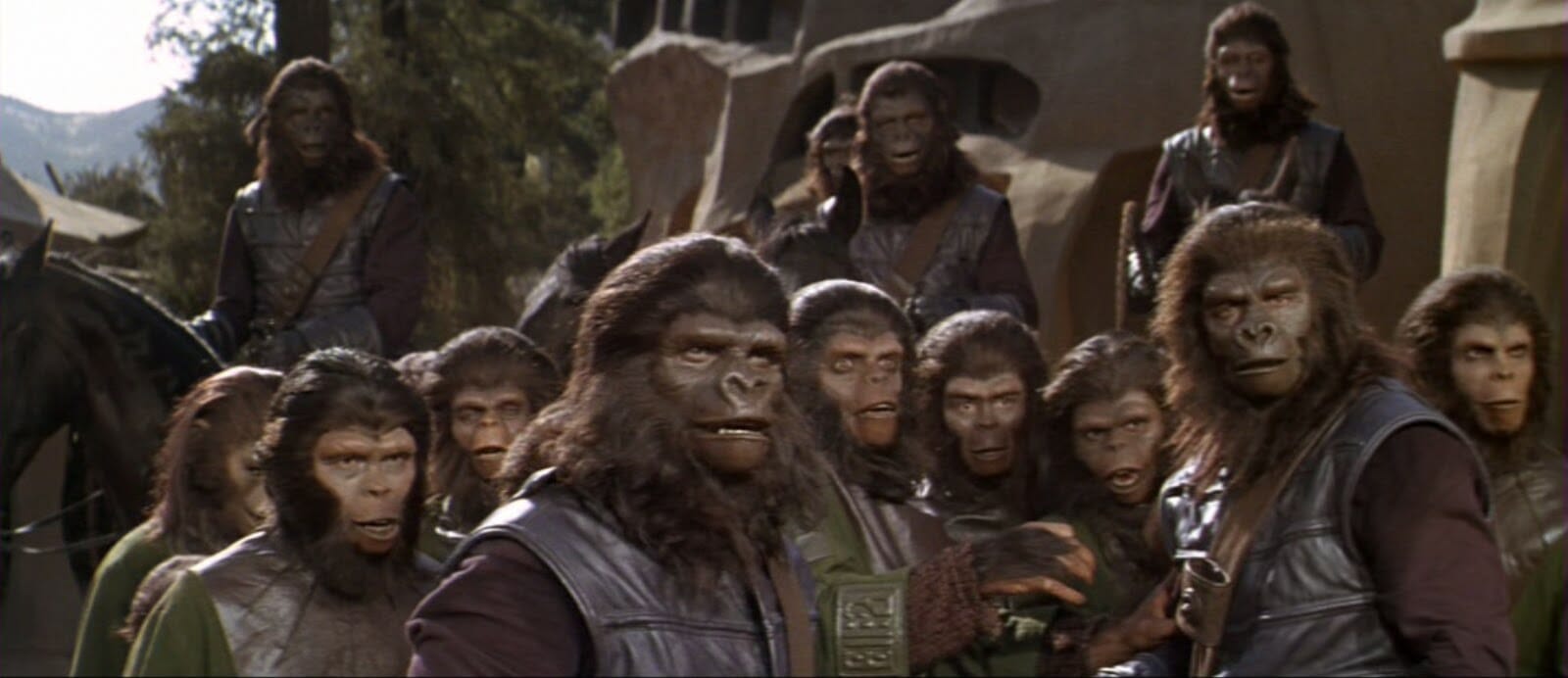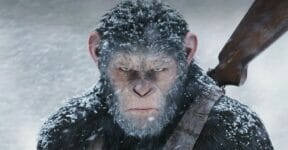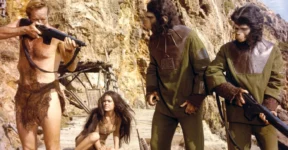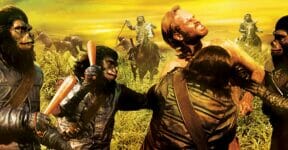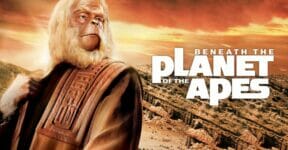George Taylor, the main protagonist in the original Planet of the Apes (1968) portrayed by Charlton Heston, is depicted in the ending scene as escaping from the ape-dominated society into the Forbidden Zone. He is accompanied by Nova, another former human captive, on horseback. Riding along the shoreline, they bump into a ruined Statue of Liberty half-buried in the sand. Taylor cannot help but realize that humans have finally done the inevitable; they destroyed the planet. In a horribly shrieking voice, he curses humanity, “God damn you all to hell!” Find out all about the Cast of The Planet of the Apes 1968 here!

Right from the prologue and all the way to the epilogue, the film delivers satirical commentaries on various issues plaguing 1960s America. Planet of the Apes remains one of Hollywood’s greats today as it conveys a gravely disturbing allegory on the issues of civil rights, racial conflicts, and the injustices of slavery. Critics and audiences agree it is a heavily political film wrapped in a captivating action-adventure science fiction presentation.
It is a cultural phenomenon for many reasons, from the creative makeup design and the scriptwriting to the suspenseful action sequences and the iconic ending scene. But none of those would be possible if not for its farfetched premise brilliantly performed by the ensemble cast of The Planet of the Apes 1968.
Larger the Life Premise
A 20th-century astronaut Captain George Taylor embarks on a space mission and is inadvertently sent back to the Earth of the distant future. He crash-lands on a barren planet where apes are the dominant species. There are humans, but they are nothing more than mute slaves and pets. As far as Taylor is concerned, it is an extraterrestrial planet on which society is racially stratified. Orangutans run the government, gorillas are soldiers and police, and chimpanzees form the intellectual groups of scientists. Humans are at the bottom of the hierarchy.
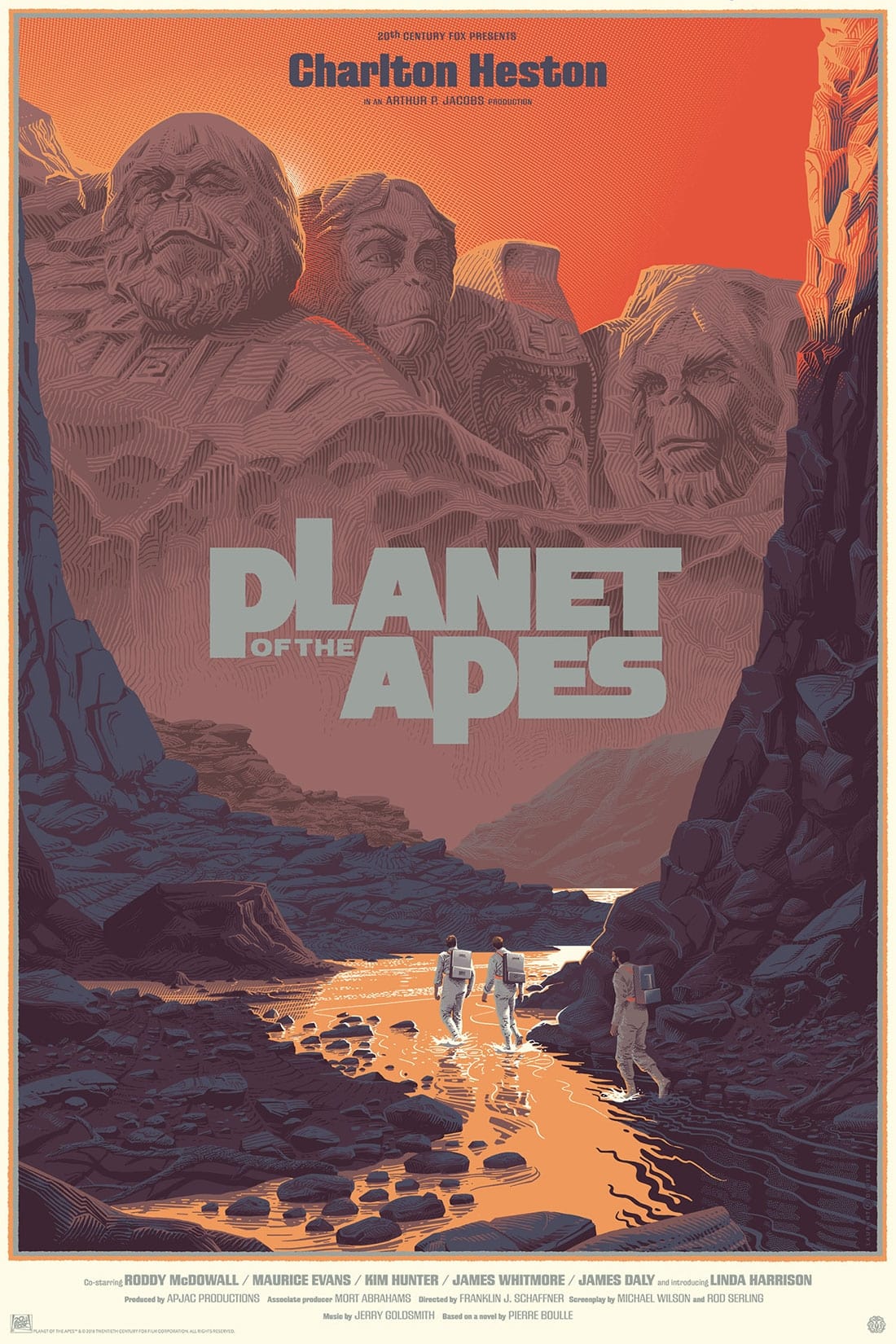
The story unfolds primarily from Taylor’s perspective. He must deal with a strikingly different new reality, where he is relegated to being a member of an inferior species. Every feature that should give him privilege in his own world, most prominently whiteness and maleness, now puts him at a disadvantage. In other words, a stereotypically white male American projecting the values of self-reliance, a good education, rugged individualism, and autonomy becomes underprivileged. He is forced to navigate the world outside the familiar comfort zone without the conventional American historical context. Taylor is criminally marginalized.
Cast of the Planet of the Apes 1968
The premise alone is fascinating enough to skyrocket the film to the heights of memorability for generations. However, it probably wouldn’t be able to communicate the messages properly without the right selection of couriers: the Cast of the Planet of the Apes 1968.
Charlton Heston
A star known for playing virtuous and heroic characters (such as Mark Anthony, Moses, Judah Ben-Hur, and Michelangelo, to name a few), Charlton Heston plays the lead role in Planet of the Apes, George Taylor.

The broad-chested white male Heston symbolizes the strength and dominance of the civilized world. At the same time, Taylor is also an arrogant and cynical person who dislikes the human tendency for self-destruction. Once Taylor finds himself stranded on the ape planet, any of his former hegemony is reduced to oblivion. In the ape society, humans are a second-class species no matter how well-educated they are. Taylor no longer has his credibility and freedom.
Taylor is shown to speak of misanthropy during the prologue, yet for the rest of the film he is at the forefront of the battle to defend humanity. Thanks to Heston’s masterful and authoritative persona, the messages about oppression and humans’ condescending behaviors toward other species become clear and impactful.
Roddy McDowall
In the role of a chimpanzee archaeologist, Dr. Cornelius is Roddy McDowall. The ape society learns from the “sacred scroll” that God created humans and apes as different species entirely. On the other hand, Cornelius wonders if apes evolved from humans. McDowall’s facial expressions and emotions remain clearly visible despite the heavy makeup work, making Cornelius a notable character. An outright professional actor, McDowell makes an effort to study actual chimpanzee behaviors at the San Diego Zoo in preparation for the role.
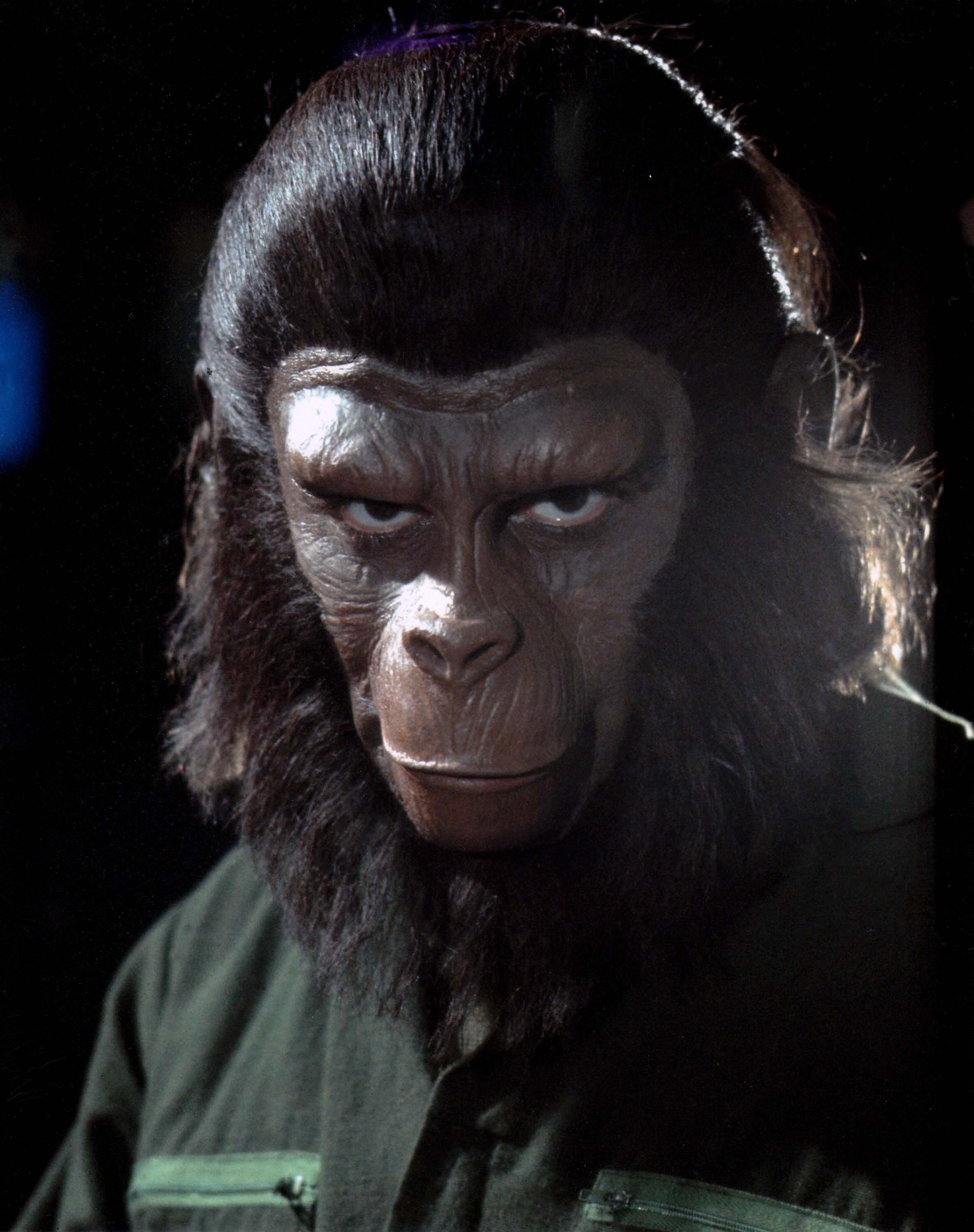
He is also featured as Cornelius in the third sequel, Escape from the Planet of the Apes, as Caesar (son of Cornelius and Zira) in the last two films of the original series, Conquest of the Planet of the Apes and Battle for the Planet of the Apes, and as Galen in the Planet of the Apes TV series.
Kim Hunter
In 1951, Kim Hunter received an Academy Award and a Golden Globe Award for Best Supporting Actress for his performance as Stella Kowalski in A Streetcar Named Desire. She was once blacklisted during the McCarthy era allegedly because of her support for the Civil Rights movement and her association with the World Peace Conference.

Her portrayal of the chimpanzee psychologist Dr. Zira in The Planet of the Apes is a blessing to the production team. Hunter and McDowall come to realize that the multi-layered makeup, especially around the nose, made their voices sound nasal. They joined together in an effort to find an effective workaround and teach other actors how to get rid of the problem.
Maurice Evans
English-born Shakespearean actor Maurice Evans fills the role of the antagonist orangutan, Dr. Zaius. Until today, no other actor has appeared in more American productions of Shakespeare. Even under extensive makeup, Evans’ performance as Zaius is spot on. Not only does the orangutan look real, but the actor’s facial muscles also translate well through the makeup.

In Planet of the Apes, Zaius is an influential figure who despises Taylor’s very existence. Zaius is an educated orangutan, and he finds no problem manipulating others or twisting the truth just to retain a position of power in the government. The foam-rubber makeup simply cannot conceal the actor’s brilliance.
Linda Harrison
It must be said that Nova, portrayed by Linda Harrison, only has a thing or two to say in the film. Be that as it may, her voiceless and at times awkward-looking performance speaks a great deal about the nature of the human species in the POTA. Humans are primitive and they should be depicted as such. Harrison is camera-shy throughout the filming, and she turns it into a strength rather than a weakness.

Although her name is not as big as McDowall or Evans, let alone Heston and Hunter, Harrison delivers just the right combination of cluelessness and raw beauty perfect for the role.
Have you seen the original POTA movie? What did you think of the Cast of the Planet of the Apes 1968 Let us know. We’d love to hear from you.
Other things you might want to know:
How did the actors who played the different species of apes in POTA “act” when they were off camera?
During breaks in filming, actors made up of different ape species tended to hang out together, gorillas with gorillas, orangutans with orangutans, and chimps with chimps. It wasn’t required, it just naturally happened.
Who decided on the ending of the original POTA 1968 movie?
There were three other endings suggested for the film’s climax, but the one favored by Charlton Heston ultimately won out.
How did the makeup artists make the ape’s faces seem so realistic in the POTA 1968 film?
To give the apes their lifelike appearance, makeup director John Chambers drew from special-effects techniques he’d learned during World War II doing cosmetic surgery on deformed soldiers.
Check out other articles by month:

